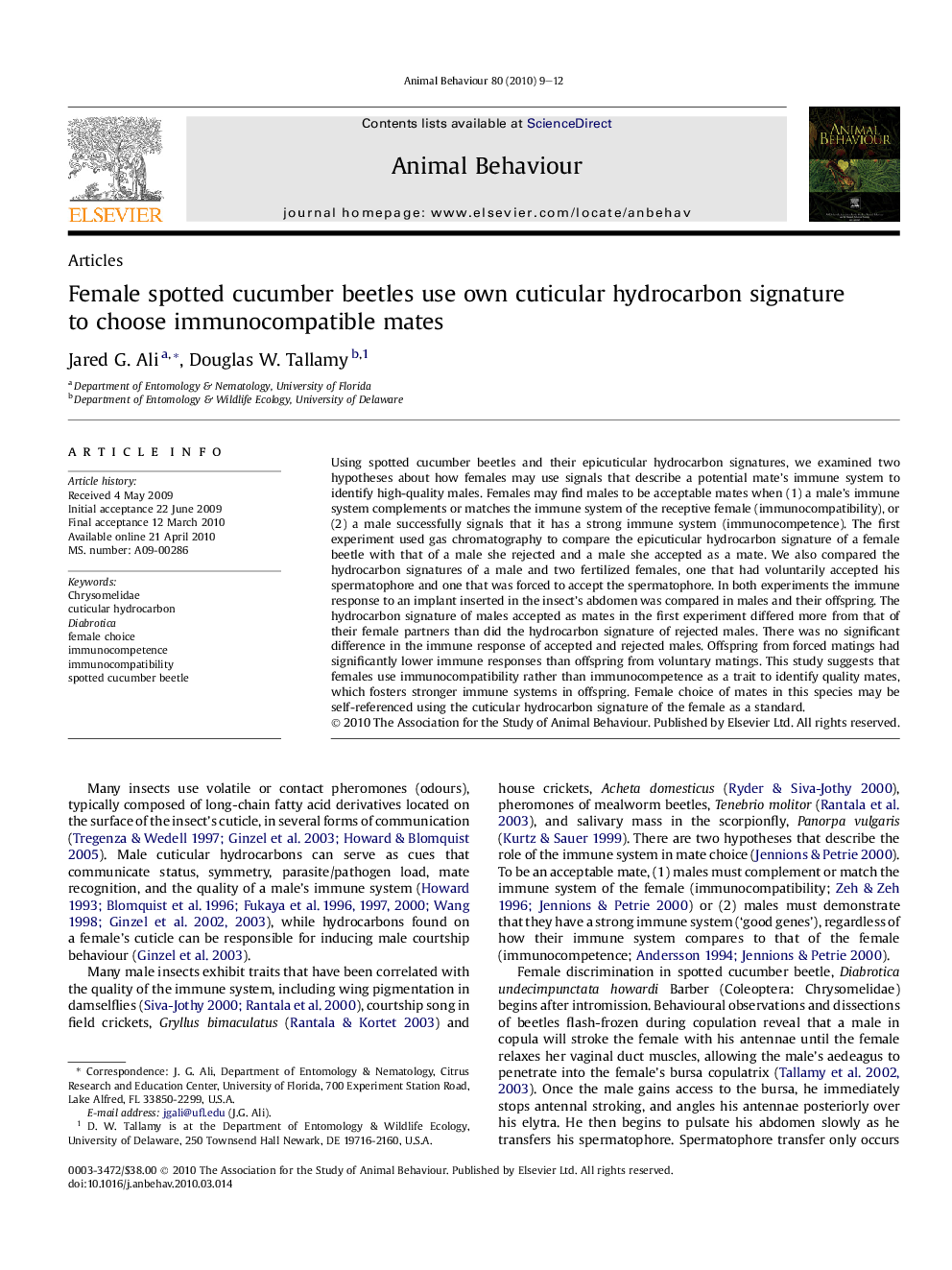| Article ID | Journal | Published Year | Pages | File Type |
|---|---|---|---|---|
| 2417265 | Animal Behaviour | 2010 | 4 Pages |
Using spotted cucumber beetles and their epicuticular hydrocarbon signatures, we examined two hypotheses about how females may use signals that describe a potential mate’s immune system to identify high-quality males. Females may find males to be acceptable mates when (1) a male’s immune system complements or matches the immune system of the receptive female (immunocompatibility), or (2) a male successfully signals that it has a strong immune system (immunocompetence). The first experiment used gas chromatography to compare the epicuticular hydrocarbon signature of a female beetle with that of a male she rejected and a male she accepted as a mate. We also compared the hydrocarbon signatures of a male and two fertilized females, one that had voluntarily accepted his spermatophore and one that was forced to accept the spermatophore. In both experiments the immune response to an implant inserted in the insect’s abdomen was compared in males and their offspring. The hydrocarbon signature of males accepted as mates in the first experiment differed more from that of their female partners than did the hydrocarbon signature of rejected males. There was no significant difference in the immune response of accepted and rejected males. Offspring from forced matings had significantly lower immune responses than offspring from voluntary matings. This study suggests that females use immunocompatibility rather than immunocompetence as a trait to identify quality mates, which fosters stronger immune systems in offspring. Female choice of mates in this species may be self-referenced using the cuticular hydrocarbon signature of the female as a standard.
